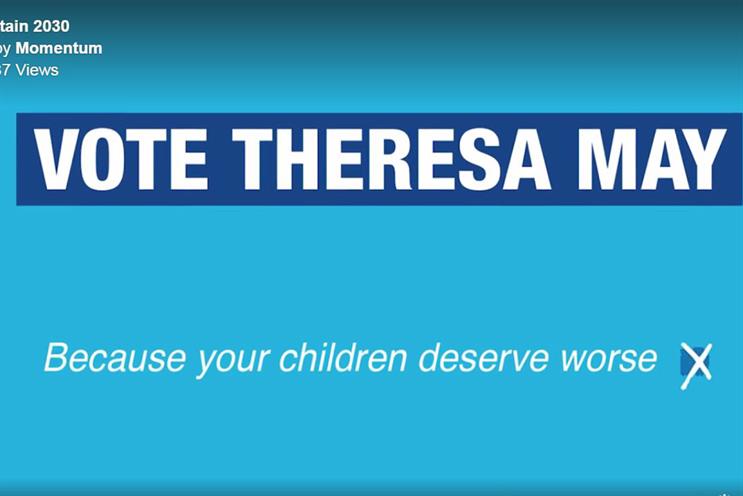
There’s been a whole campaign and conversation going on in people’s inboxes and Facebook feeds during this election that the media won’t have seen. .As newspaper audiences decline and broadcast audiences fracture, it’s a no-brainer for political parties to bolster their online presence. We know that more than half the country consume their news online. And the smartphone is the main vehicle for people to digest the latest developments. News by appointment belongs to a bygone era.
Political parties are increasingly turning to Facebook and social media and away from traditional billboards and TV broadcasts to target voters. It’s a lot cheaper, it’s a lot more effective and it’s a lot more targeted.
Historically, both Labour and Conservative have faced the problem of piling up votes in safe areas. Elections are often won in a clutch of key swing seats where you need to persuade floating voters to lend you their ‘vote.’ And that’s where social media can be a game changer.
Political parties are increasingly turning to Facebook and social media and away from traditional billboards and TV broadcasts to target voters
The news that a Facebook attack advert released by the Conservatives last week has become one of the most watched ads in British political history with more than five million views should come as no surprise. Half the country are on the platform and levels of engagement are high – on average thirty five to forty minutes a day. And in a snap election with an acutely short window to engage voters social media is a way to get to the voters at lightning speed.
During this election we’ve had a debate raging about online political ethics. I want to sound a note of caution so we don’t just sleepwalk into heavily regulation. Of course we need to guard against and stamp out any falsehoods or smears being peddled by any political party online. But politics is a contact sport and you’ve got to roll with the punches.
Pockets of the left have claimed the Conservative attack ads on Jeremy Corbyn’s past support for groups like the IRA are unpalatable. But it is entirely legitimate to question such links for a man wanting to become our next Prime Minister. And the popularity of the Conservatives latest attack ad is testament to this.
Labour have Momentum pushing out slick well-produced attack ads against the Tories clearly endorsed by Jeremy Corbyn and co.
And this is a smart move as it allows the party to focus on more positive adverts and stay above the fray. By contrast, the Conservatives have taken the front door approach with both negative and positive ads.,
In the US the Republicans had America Rising, a right-leaning political campaign group producing opposition research on Hillary Clinton and Democrat candidates which proved to be brutally effective. They relentlessly hammered her over her use of private email in the White House which arguably may have contributed to her defeat at her polls. The internet provides a whole new world for campaign groups to shape the political agenda, surely something we should embrace as a tool to engage an increasingly cynical public turned off by the political debate.
Question marks are being raised as to whether the increasing use of social media targeting by political parties breaches data protection laws or should be subject to regulation. On the data protection front, we will have to await the outcome of an investigation the Information Commissioner has launched on the subject.
But in principal, I have no issue with the micro-targeting of voters by political parties online. Political parties have always sought to target voters, whether that be through door-to-door canvassing or direct mail. The parties are simply moving with the times. You have different conversations going on on the doorstep. Now you have them online.
The Labour party has a chatbot on its Facebook page, similar to ones being used by big business to solve customer queries and problems in a quick and efficient way
And businesses do exactly the same with their online ads. What’s often forgotten in this whole debate is that online users have the choice to stop and click on the ad, watch that video or can simply choose to scroll on past. No-one is being forced to consume the advertising. The Labour party has a chatbot on its Facebook page, similar to ones being used by big business to solve customer queries and problems in a quick and efficient way.
Where I do have an issue with platforms like Facebook is its stance on the explosion of fake news which is unsustainable and irresponsible. Once the disruptor, it's now firmly part of the establishment and that brings with it greater responsibility and a requirement for stringent safeguards. But that’s a conversation for another time.
Giles Kenningham is a former head of press at No10 and spokesman for prime minister David Cameron. He is a founder of PR consultancy Trafalgar Strategy

